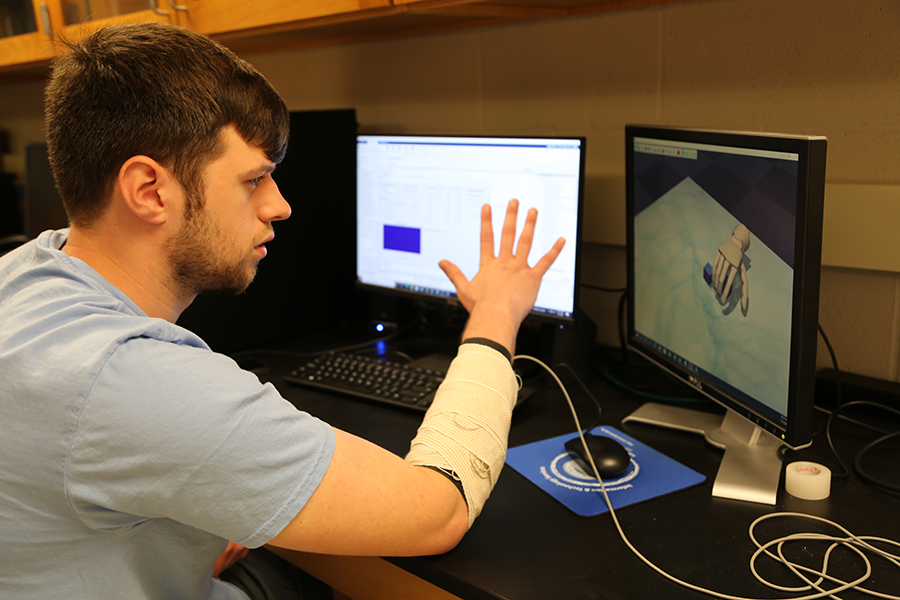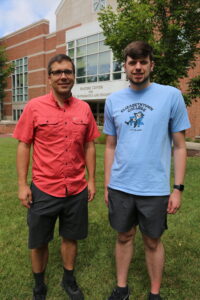Elizabethtown College Computer Engineering major Nathan Griffin ’23 is expanding on his previous research by creating algorithms that allow prosthesis users to experience artificial touch and pressure feedback through electrical stimulation.
Nathan’s work this summer is an extension of a past Summer Creative Arts and Research Program (SCARP) project which worked to develop inexpensive software that allowed users to control a virtual prosthetic arm. This SCARP is conducted in collaboration with an Etown faculty mentor.
Title of Research
Minimizing Stimulation Artifact in Real-Time Movement Decoding
Student Researcher
Nathan Griffin ’23 (Computer Engineering major)
Faculty Mentor
Mark Brinton, Assistant Professor of Engineering and Physics
Nathan: I am exploring how the performance of different movement decoding algorithms such as the Kalman filter, a Feedforward Neural Network, and a Convolutional Neural Network are affected by signal artifacts due to electrical stimulation. Sensory feedback provides a sense of touch for the amputee and surprisingly, between 30 to 50 percent of amputees reject their prosthesis and do not use it regularly, in part because the prosthesis does not provide a sense of touch—a crucial input for normal arm function.
I am working toward providing this sense of touch without expensive and invasive surgeries. I am trying to have the algorithm learn to ignore the simulation artifacts enough to have refined movement control to use a prosthesis while having sensory feedback.
Why did you choose this topic?
Nathan: I chose to continue my project from last year to help provide a low-cost solution to prothesis with a sense of touch. I find it cool that I can eventually help provide something for someone who needs it.
What is the most interesting aspect of this research?
Nathan: The most interesting aspect of my research is figuring out what the best algorithm to use is to get rid of the stimulation artifact in real-time movement decoding.
How has your faculty mentor helped you?
Nathan: My mentor, Dr. Brinton, has helped a lot during this experience. Being able to go to him whenever I am having trouble figuring anything out and having his knowledge of the subject behind me is very enlightening.
Hear from the faculty mentor – Mark Brinton
“Nathan started working with me a year ago,” Brinton said. “He began by writing code and designing a graphical user interface that enables our research participants to control a virtual robotic arm using their own finger movements and muscle contractions.
“This summer, he has helped to expand the types of experiments that we can perform in the virtual environment and the types of algorithms available to control the arm. We have incorporated sensory feedback using electrical stimulation of nerves in the skin so that the user can feel when the virtual robotic arm touches an object.”


